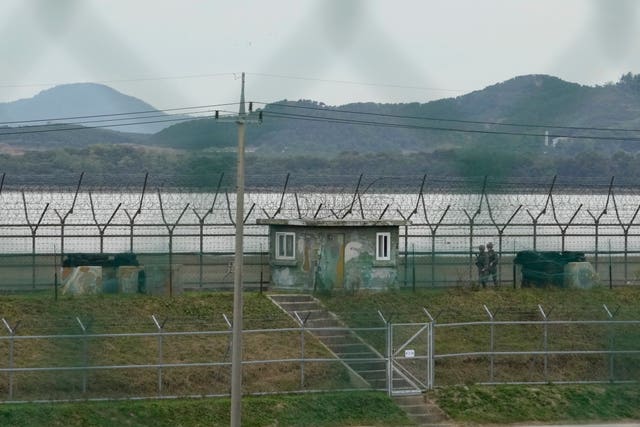South Korea says North Korea has blown up roads near border
The rivals remain locked in rising animosities over the North’s claim that its neighbour flew drones over its capital, Pyongyang.

South Korea said North Korea blew up the northern parts of inter-Korean roads no longer in use as the rivals remain locked in rising animosities over the North’s claim that its neighbour flew drones over its capital, Pyongyang.
South Korea’s Joint Chiefs of Staff said in a brief statement that North Korea blew up parts of the roads on Tuesday.
It said South Korea’s military is bolstering its readiness and surveillance posture, but gave no further details.
The explosions came a day after North Korean leader Kim Jong Un called a meeting with his top military and security officials.

North Korea had put frontline artillery and other army units on standby to launch strikes on South Korea if drones are found over North Korea again.
South Korea has refused to confirm whether it sent drones but warned it would sternly punish North Korea if the safety of its citizens is threatened.
Destroying the roads would be in line with Mr Kim’s push to cut off ties with South Korea, formally cement it as his country’s principal enemy and abandon the North’s decades-long objective to seek a peaceful Korean unification.
During the previous era of inter-Korean detente in the 2000s, the two countries reconnected two road routes and two rail tracks across their heavily fortified border. But their operations later were suspended one by one as they wrangled over North Korea’s nuclear programme and other issues.
Last week, North Korea said it would permanently block its border with South Korea and build frontline defence structures to cope with “confrontational hysteria” by South Korean and US forces.
South Korean officials said North Korea had already been adding anti-tank barriers and laying mines along the border since earlier this year.
They said North Korea has also planted mines and removed lamps along its sections of the inter-Korean roads and taken out ties on the northern side of the railways.





